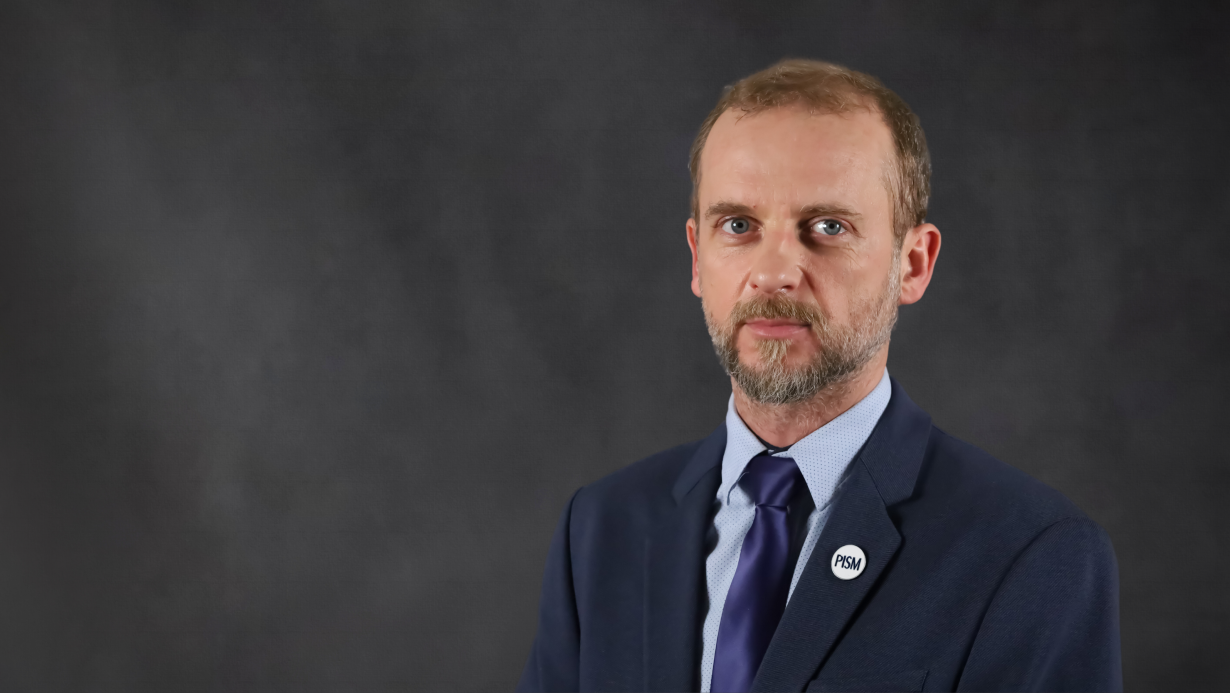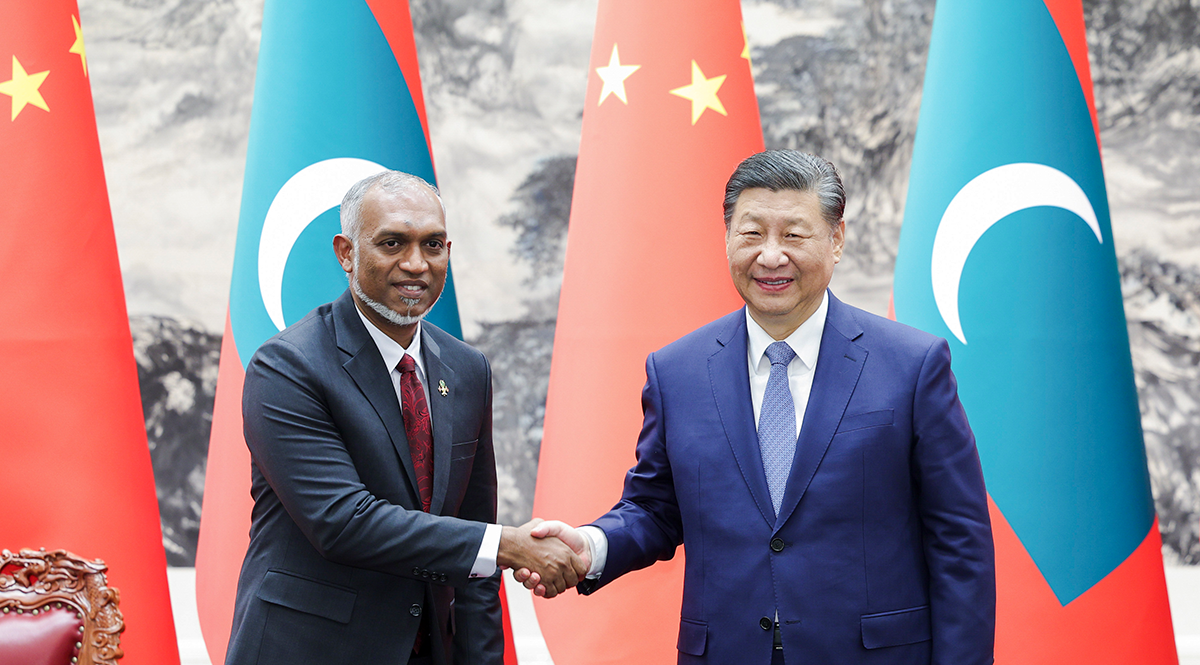Presidential Elections in Sri Lanka Brought Historic Change
Sri Lanka’s 21 September presidential election was won by leftist candidate Anura Kumara Dissanayake. This follows public disillusionment with the political class and marks a rejection of painful austerity economic policies. The main challenge for the new president will be to strengthen the economy and renegotiate the IMF agreement to lower the cost of living. In foreign affairs, he will pursue pragmatic policy and work with all partners to improve the country’s economic situation. Poland may consider intensifying political and economic cooperation with Sri Lanka, including in the tourism, maritime, and education sectors.
(1).png) Dinuka Liyanawatte / Reuters / Forum
Dinuka Liyanawatte / Reuters / Forum
Election Results
The election of the head of state in the 22-million-people island country was the first democratic test since the economic crisis and the resignation of the previous president, Gotabaya Rajapaksa, in July 2022. A record 38 candidates competed for the key office under the country’s presidential system, although only three had a realistic chance of winning. The surprise winner emerged 55-year-old Dissanayake, leader of the far-left People’s Liberation Front (JVP) and candidate of the broad left coalition National People’s Power (NPP). Although he has been active in Sri Lankan politics since the 1990s, having been a member of parliament since 2000 and even a minister in 2004-2005, he presents himself as a man outside the political establishment. In the 2019 presidential election, he only received 3% support, but his popularity soared after the 2022 mass protests.
The massive economic crisis and bankruptcy of the country at the time gave rise to the public’s belief in the incompetence and corruption of the entire political class and the demand for a comprehensive change of the political and economic system, which was only partially realised. In an extraordinary situation, in July 2022, an interim president was elected by parliament—a position assumed by multiple time Prime Minister Ranil Wickremesinghe, which maintained the political status quo. In addition, the economic reforms he introduced as part of the austerity measures required by the IMF in exchange for the bailout programme ($2.9 billion) caused growing frustration among the population. Although the changes have allowed the macroeconomic situation to stabilise (inflation has fallen from 70% to 1.1% today and GDP is expected to grow by 3% this year), this has been at the expense of impoverishing the majority of the population. Therefore, although Wickremesinghe ran for re-election he came third paying the price for unpopular reforms.
Dissanayake, with the support of 43% of the electorate, won after a tight fight with the leader of the opposition in parliament and son of the country’s president from 1989-1993, Sajith Premadasa (33% of the vote), who was also seen as part of the former political class. For the first time in history, it was necessary to count preferential votes in the election system, as no candidate obtained more than 50% of the vote in first count. Also, for the first time a person who does not have the support of more than half of the voters has become president, weakening his mandate. Additionally, Dissanayake lost in the north and east of the island inhabited by the Tamil minority, suggesting a particular distrust among this ethnic group.
Internal Challenges
Implementing the president’s election programme will require cooperation with parliament, where the NPP currently had only three MPs (out of 225 seats). For this reason, the president has already dissolved parliament on 24 September and called early elections on 14 November this year. It is unlikely that the parties supporting Dissanayake will get an absolute majority, which will limit the possibility of radical systemic changes.
The main challenge for the new authorities will be to strengthen the economy. Despite recent improvements, the situation is far from stable. The moratorium on debt repayment, which has risen to more than $100 billion (that is 99% of GDP) will also end in 2027. Announcements to cut taxes and increase aid to the poorest could increase inflation and worsen public finances.
Dissanayake’s second goal is to deliver on election promises to fight corruption and nepotism, strengthen good governance and increase transparency in public life. The challenge will be to rebuild trust among the Tamil minority and bridge the ethnic divisions in society that persist after the civil war ended in 2009. It may be extremely difficult to deliver on the promise to punish influential politicians from previous governments accused of corruption and mismanagement, which will exacerbate internal political strife.
International Significance
The election results will not change the country’s foreign policy. Foreign affairs, including the traditionally important relations with India and China, were not an issue in the election campaign and the main candidates did not differ much in this regard. Concerns about a pro-Chinese turn, stemming from criticism of some Indian investment plans (e.g., in wind power, a bridge linking India and Sri Lanka), seem exaggerated. The experience of recent years, especially during the recovery from the economic crisis, has shown the Sri Lankan elite that they need to have good relations with all major partners and skilfully exploit the Sino-Indian rivalry.
The main international challenge is the announced renegotiation of the IMF agreement. However, the new president is aware that this aid is necessary to avoid another crisis, and that the increase in spending for the poorest must be offset by new revenues (e.g., property tax). Hence, he has denied the possibility of ripping up the deal, and will rather seek solutions acceptable to the IMF.
The way to increase budget revenues would be to attract new investments (including from the diaspora) and increase exports. This would also improve foreign exchange reserves and the balance of payments. The president announces support for agriculture, the manufacturing sector and services, especially IT and BPO. Sri Lanka also has untapped potential to develop tourism (1.5 million tourists in 2023 against, for example, 1.8 million in the neighbouring Maldives of 0.5 million population) and logistics. An opportunity for the island would be to become part of regional production chains, including joining the RCEP free trade zone.
Conclusions and Outlook
The Sri Lankan election results represent the implementation of the 2022 protesters’ demands, reflect a deep disillusionment with the state, and may herald a beginning of a new political era in the island-state. The new president will be tasked with rebuilding trust in public institutions, including by reducing the cost of economic reforms. The difficult economic situation, and a weaker-than-usual electoral mandate, will make it difficult for him to implement the political and economic changes he has promised. His effectiveness and political stability will depend on the outcome of the general elections in November. At that time, Dissanayake will introduce a number of his economic promises benefiting the poorest (e.g., tax reduction). The appointment of Harini Amarasuriya, a woman and human rights activist from the NPP party, as interim prime minister also promises to replace the political class and relying on experts and including disadvantaged groups (women, minorities).
In foreign policy, despite its ideological proximity to China, the new government will not turn its back on pragmatic cooperation with India or take sides in the U.S.-China rivalry. The priority will be to renegotiate the IMF agreement to limit its social costs. It is possible that economic reforms will slow down as a result and that tensions with the IMF will increase, but the benefit will be increased public acceptance of the transition.
The announcement of a focus on combating corruption, increasing transparency and strengthening democracy opens up new scope for agreement and cooperation with the West, particularly the EU, which can provide support in efforts to improve governance. The U.S. and the EU can ease economic recovery and reform by making investments on the island, especially in the logistics and renewable energy sectors. It is important for Sri Lanka to maintain preferential access to the EU market under the GSP+ scheme. There may also be an opportunity to make progress on the issue of settling crimes after the 2008-2009 civil war with the Tamil Tigers, something the West has been seeking for years. Although the majority of the Sri Lankan public believes that the proceedings against it at the UN Human Rights Council are politicised, the new president may be interested in finding a domestic mechanism for settling injustices and reconciliation with the Tamil minority.
Poland can use this historic period of change to intensify bilateral cooperation. Former Sri Lankan Foreign Minister Ali Sabry’s visit to Warsaw in July this year—the first since the end of the Cold War—shows an interest in closer relations. A revisit by the Polish minister in 2025, during the Polish presidency of the EU Council, would be a good step forward. Tourism, maritime economy and logistics, education and vocational training, IT services, labour mobility are some areas with potential for closer cooperation. In view of the growing number of Polish tourists travelling to Sri Lanka (30,000 by 15 September this year against 17,000 in the whole of 2023) and the economic opportunities, Poland may consider opening a Consulate General on the island, which would partly replace the embassy in Colombo, which was closed in 1993.





(1).png)